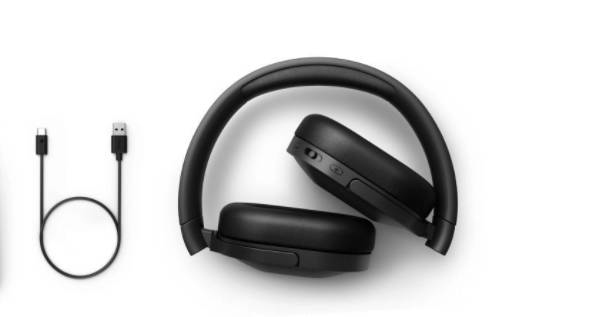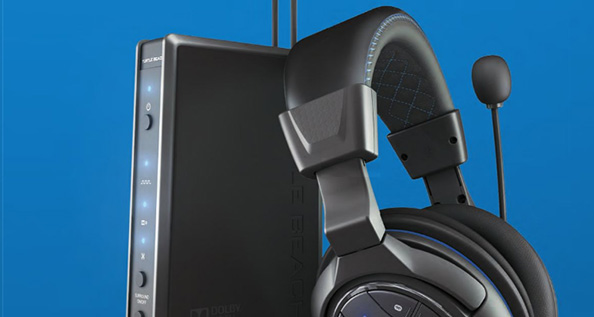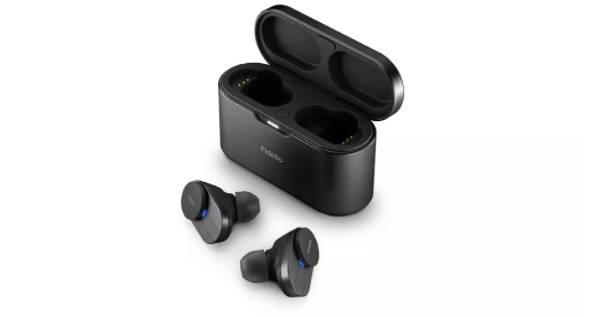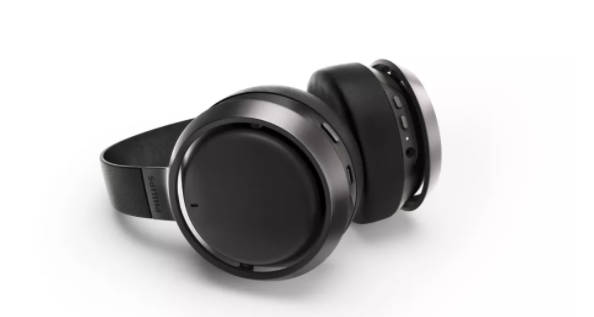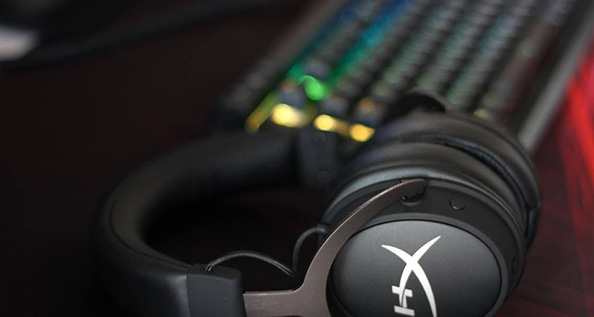Razer Blackshark V2 Review
The best $99 wired gaming headset we\'ve tested
Razer makes a lot of gaming headsets for different situations. If you want a big, powerful, wired over-ear experience, there’s the Kraken line. If you want wireless connectivity, there’s the Nari line. And if you want a sleek, light, competitive headset, there’s the Blackshark V2. This $99.99 gaming headset lacks the bulk of the Krakens while offering powerful surround sound thanks to a 7.1-channel USB sound card and software-based THX Spatial Audio, along with an excellent microphone. It’s comparable with the Razer Kraken Tournament Edition ($99.99) and even the pricier Kraken Ultimate ($129.99), but with a sleeker design and even better performance. That earns the Blackshark V2 our Editors’ Choice for wired gaming headsets.
Design
The Blackshark V2 is lighter and a bit less bulky than Razer’s Kraken and Nari headsets. The signature big, circular earcups are gone, replaced by more conventional oval earcups with matte black plastic shells. Bright green Razer logos sit on the back of each earcup, which connect to each other through short neon green fabric-covered wires that link each cup through the black headband. Twin cylindrical struts on either side of each earcup attach to the headband on thin metal arms, sliding up and down on those arms to adjust the fit while allowing for a vertical pivot.
The earpads are soft memory foam covered in breathable fabric, with matching fabric-covered padding on the underside of the headband (the top side of the headband is faux leather). Because the headset is so light and breathable, it’s quite comfortable to wear even on bigger heads, and is suitable for long gameplay sessions.
A six-foot, fabric-wrapped cable is permanently attached to the bottom of the left earcup, and terminates in a 3.5mm plug. A port in front of the cable accepts the removable boom microphone, a foam-covered capsule on a flexible metal arm. A mic mute button sits right behind the headset cable, and a large volume dial sits on the back panel of the earcup (the volume works separate from your device’s volume levels). The permanently connected cable is a bit of a disappointment, as a removable cable is much easier to replace than an entire headset.
The Blackshark V2 comes with a 7.1-channel USB sound card, which is downright tiny. The card is a 1.75-by-0.6-inch (HW) rectangular plastic module on a short, two-inch fabric-wrapped cable that terminates in a USB plug. A green LED on the module indicates when it’s plugged in and functioning, and a 3.5mm headset port sits on the end opposite the USB cable. The headset also comes with a black fabric drawstring carrying bag.
Connectivity and Software
Because the Blackshark V2 uses a 3.5mm connection, it can work with any modern gaming device or computer, and many phones and tablets. However, to get the most out of the headset, like THX Spatial Audio simulated surround sound and a plethora of audio and microphone adjustments through the Razer Synapse software, you need to use the included sound card, designed for use with PCs.
A version of the Blackshark V2, the Blackshark V2 X, is available without the sound card for $69.99. However, it uses different audio components and has some scaled-back design elements, like a rubber cable instead of a fabric-wrapped one.
With the sound card connected, you can use Razer Synapse to adjust the Blackshark V2’s various audio settings and enable THX Spatial Audio simulated surround sound. The software offers access to a 10-band EQ with plenty of presets, along with Bass Boost, Sound Normalization, and Voice Clarity features that can be toggled and adjusted. The microphone has its own 10-band EQ with various presets, along with a slider to adjust mic sensitivity, and toggles for Voice Normalization, Vocal Clarity, and Ambient Noise Reduction features.
Then there’s THX Spatial Audio, accessible through the Mixer tab in Razer Synapse. The USB sound card already provides 7.1-channel simulated surround sound on its own, but THX Spatial Audio adds additional processing and mixing to simulate 360-degree sound, blending the various channels together for more accurate directional imaging. It’s an impressive effect that is available in software form through the Razer THX Spatial Audio app, and is included with the Blackshark V2.
Microphone
As is typical with Razer headsets, the microphone on the Blackshark V2 sounds excellent. Test recordings sounded clear and clean, with no softness and little sibilance. The mic also didn’t pick up the noise of my air conditioner when it was running, even without the Ambient Noise Reduction feature turned on. In fact, I found the best results just from using the default microphone settings, and leaving all of the extra features in Razer Synapse off.
Whether you use them or not, you don’t get nearly as many processing features as you do with the Logitech G Pro X or G Pro X Wireless headsets, but the mic here simply sounds much better out of the box. Of course, if you want even more clarity and control for your recordings, we recommend considering a USB microphone.
Music Performance
The Blackshark V2 offers strong bass response when playing music. In our bass test track, The Knife’s “Silent Shout,” the bass synth notes and drum hits get plenty of low-frequency presence that comes close to head-rattling territory. At maximum (and unsafe) volume, the headset doesn’t distort.
Yes’ “Roundabout” sounds very good on the Blackshark V2. The opening acoustic guitar plucks have plenty of resonance and string texture, showing presence in the lower frequencies and finesse in the higher frequencies. When the track really kicks in, the electric bass sounds punchy and full, while the guitar strums, drums, and vocals are all given enough attention to be clearly discerned in the busy mix.
The driving backbeat in The Crystal Method’s “Born Too Slow” reaches deep enough into the bass frequencies to sound powerful and ominous, while the guitar riffs get enough higher-frequency presence to keep the track sounding energetic. The screaming vocals come through clearly against the cacophony, showing strong balance that gets enough attention to every element in the mix.
Gaming Performance
I played Doom (2016) with the Blackshark V2 using THX Spatial Audio simulated surround sound through the USB sound card and Razer Synapse. It provided a strong sense of directional imaging, letting me know when there were enemies behind or flanking me. It didn’t feel quite as precise as the Logitech G Pro X Wireless’ simulated surround sound, but it still offered an advantage by warning me of the general direction of attacks. The industrial soundtrack comes through clearly, and the various sounds of weapons are punchy, but not thunderous.
I also played some Fortnite, and again the Blackshark V2 worked very well. I could tell the general direction of distant gunfire, letting me know which way to run. Directional imaging became less accurate as enemies got closer, and it generally felt less precise than the G Pro X Wireless, but it still worked nicely, and sound quality is strong overall.
Ride the Shark
The Razer Blackshark V2 is an excellent wired gaming headset with a reasonable price. For $100, it offers good sound quality with simulated surround sound, a fantastic microphone, and a light, comfortable build. Its 3.5mm connection gives it flexibility, and its USB sound card gives it plenty of software-based features and options. The only real drawback to the headset is its permanently attached cable.
If you're looking for something on the more premium end, the $250 Astro Gaming A40 and Turtle Beach Elite Pro 2 are bigger (and bulkier), more powerful headsets with physical mixing amps and much higher prices. If you want wireless convenience, the Razer Nari Essential is another strong choice for the same price as the Blackshark V2. If you just want a very good, affordable gaming headset with plenty of features and impressive performance, however, the Blackshark V2 is the one to beat, and our Editors' Choice.




